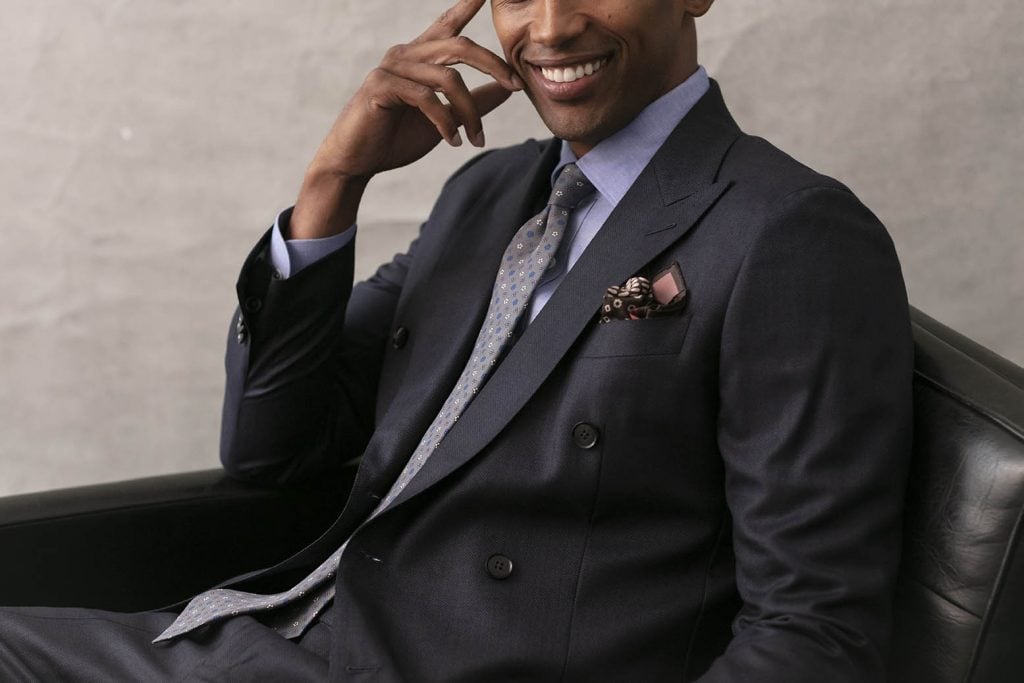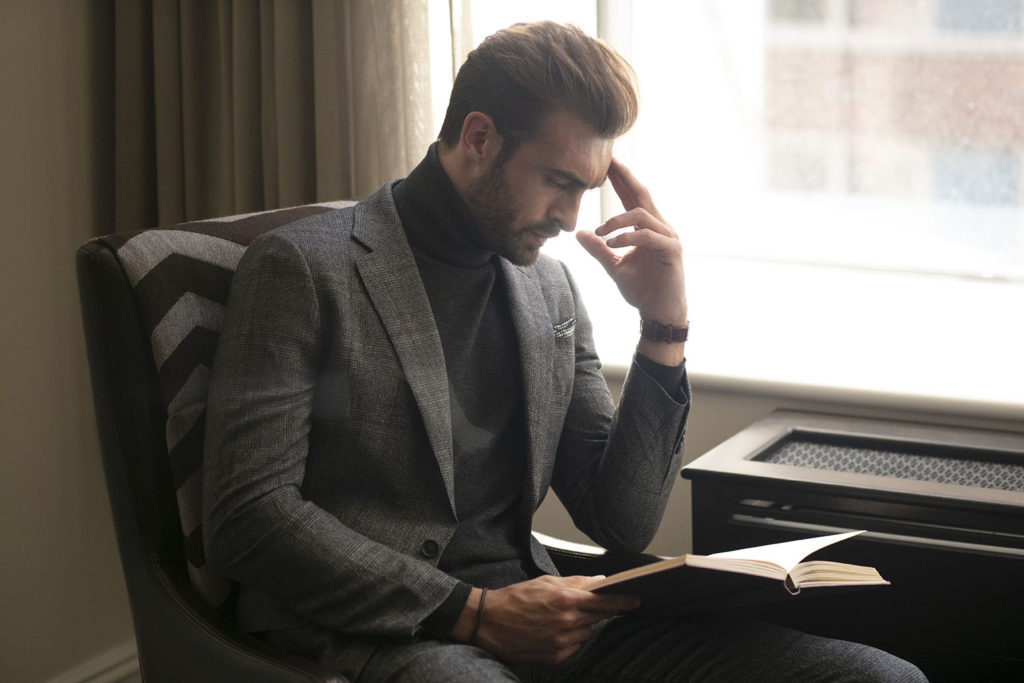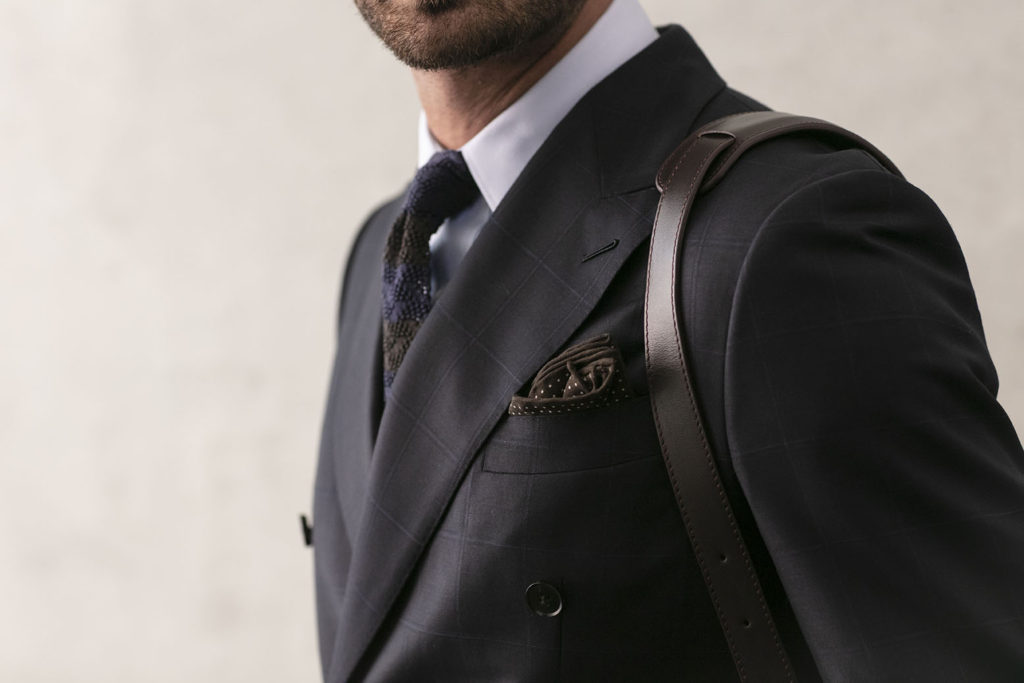\
A great deal of thought and preparation goes into nailing a job interview—striking the right balance between personable and professional, articulating your skills and experience, and, of course, choosing the right outfit. While your qualifications will be more important to your employer than your appearance, what you wear to an interview does send a signal about your level of professionalism and preparation; if it comes down to a tight decision between you and another equally-qualified candidate, your choice of clothes might be the element that puts you over the top.
How to Decode Office Attire
Selecting the right interview outfit involves finding answers to simple questions about your prospective office. The most reliable way to decipher the appropriate attire is also the most direct: Just ask. Most bosses, hiring managers, and HR workers are accustomed to answering this type of query. Asking this question will demonstrate that you take the interview seriously and that you want to understand and embrace the office culture.
If you’d rather not ask directly, there are a number of clandestine ways to suss out the answer. If you know someone who works for the company at which you’re interviewing, or even just within the same field, reach out to them to ask about sartorial expectations. You could also scroll through company social media accounts for photos of what employees wear around the office.
A Kingdom for a Suit
Ultimately, however, figuring out what to wear for an interview doesn’t require much investigation. For most companies, regardless of industry, you won’t go astray by wearing a suit. If you’re interviewing for a position at an office where suits are an everyday requirement—or where the person interviewing you might be wearing one—then you should be wearing one as well. Want to present yourself as a serious candidate? Wear a suit. Want to signal to your future boss that you’re professional and prepared? Wear a suit. Want to avoid even the slightest possibility that you’ll waltz through the door underdressed? Wear a suit. Don’t overthink it; just reach for a suit. As long as it’s a suit that fits you well, that looks good on you, and that makes you feel ready to take on the world, you’ll be in good shape for any interview.
Are there some instances where it’d be appropriate to wear something less formal than a suit to an interview? Absolutely, and we’ll let you know all about them. Below, we’ve got some guidelines for what to wear to an interview broken down by industry and general level of office formality.
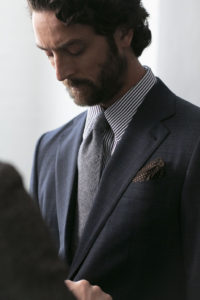
Formal Offices
If a suit is the expected daily attire in your field, then you must wear a suit to your interview, no exceptions. Unless you have an innately fashion-forward personal aesthetic and it would crimp your personality too much to repress it, we strongly advise you to err on the side of dressing in a conservative manner. Opt for a classic and simple combination, such as a dark navy suitand brown dress shoes paired with a white or light blue shirt. Patterned ties are fine, though avoid anything overly bright or flashy. Express your personality through subtle touches: a fabulous watch, a favorite pocket square, a discreet yet unique tie pin.
If you’re the proud owner of an exquisite three-piece suit and you’re interviewing for a high-level position—say, something with a corner office in the C-suite—this would be a great time to break it out. While it’s always a good idea to look your best, it’s especially important to take extra care with your appearance at an interview in a formal environment: Your clothes should be unwrinkled, your tie should be straight, and your shoes should be polished. Details count.
Best for interviews within these fields:government, finance, accounting, insurance, law, medicine, sales, luxury retail, and all Fortune 500 (or Fortune 500-adjacent) companies.
Semi-Formal Offices
Some professions require suits only for specific occasions, such as meeting new clients or giving a presentation, while some offices leave the choice of a suit versus casual wear entirely to the discretion of employees. If either of these describes your prospective employer, you have more freedom in your choice of what to wear for an interview. Keep in mind, however, that it’s generally a good idea to dress more formally for an interview than how you’d expect to dress daily for the job, and thus wearing a suit is still going to be your best choice.
However, don’t feel limited to the traditional formal suit colors of navy, grey, charcoal, brown, or black. Take advantage of the added sartorial flexibility by wearing something a little unexpected. A suit in a brighter-than-expected blue, or a paler shade of grey, or even a style-forward plaid would work well in this setting. For your choice of necktie, you should avoid letting too much whimsy seep into your look—please, we beg you, no cartoon characters—but there’s no need to be too subdued. Always be tasteful, but go ahead and be bold.
Best for interviews within these fields:retail, real estate, education, libraries, science and research, marketing, small or family-owned businesses, and administrative or managerial positions in manufacturing or processing.
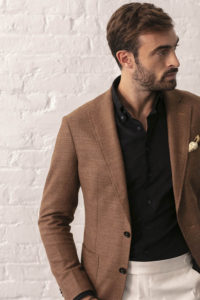
Business Casual Offices
While we’ve been advocating all along for the simple wisdom of wearing a suit, we know there are some interviews at which a classic suit will make you look and feel overdressed. A business casual interviewseems great—hey, no stuffy suit jacket!—until you realize it puts all of the sartorial stress to coordinate a winning outfit directly on you.
The business casual code is an easy one to crack. The most reliable business casual outfit is one you’ve likely seen before: a fitted pair of chinos and a crisp button-down shirt, paired with oxfords, loafers, or dress boots. Top with a jacket or blazer, or skip the top layer as you see fit.
You could also substitute a sweater—crew neck, cardigan, or turtleneck—for a button-down shirt, provided you wear it with a jacket. Choose a sweater with a fine knit made from high-quality material, such as cashmere or Merino wool, that will fit smoothly under your jacket. The jacket will signal business, while the sweater adds a casual flourish. A dress sweater worn over a button-down shirt and a necktie is a classic preppy/academic look, bound to give you a youthful and scholarly air.
Jeans can be a danger zone for the business casual interview, as they may come across as too unserious and unprofessional. If you’re interviewing for a position in a creative industry at a company with an anything-goes dress code, you can probably get away with wearing jeans. Look for a clean, well-fitting pair in a heavy dark-wash denim—if they could be plausibly mistaken for dress pants from a distance, you’ve picked the right ones—and wear oxfords or loafers instead of sneakers.
One final caution: Don’t mistake casual for cheap or sloppy. In many creative industries, tailored or designer clothes are de rigueur, particularly if the position you seek is client-facing. Aim to look as good in casual clothes as you do in your best suit by only wearing well-fitting items in good condition made from high-quality fabrics.
Best for interviews within these fields: entertainment, media, publishing, advertising, tech, gaming, architecture, design.
Common Mistakes to Avoid
No matter the formality of the interview or the field in which you’re applying, you should avoid these style missteps:
Don’t Wear Shorts
Unless you’re applying to work at a specialty store that sells nothing but shorts, wear long pants to an interview. Of course, there are some offices where shorts are a common sight, especially during the summer. But even if you know that shorts are acceptable in this office—even if you have a tailored and tasteful pair of shorts you feel certain will impress—leave them at home for the interview. Wearing full-length pants signals that you want to be taken seriously and that you can respect some formal conventions. Feel free to resurrect your shorts with impunity once you have the job and are settled into the office culture.
Don’t Wear Short Sleeves
This rule is looser than its shorts-related companion. There are some creative fields where short-sleeved shirts are both commonplace and stylish. But you should only go arms-out if you are positive that short sleeves are accepted in the office where you are applying, and if you raise the formality level of your outfit with tailored pants and dress shoes.
Don’t Choose Casual Footwear
You’re trying to signal maturity, intelligence, and reliability to a prospective boss, so always choose a formal shoe option for an interview. Leave your sneakers, your boat shoes, and your sandals in your closet.
Don’t Neglect Your Facial Hair
Beards of all styles and lengths are more popular and commonplace than ever. If you have stubble, a mustache, or a full beard, there’s no need to shave yourself clean, but you do need to make sure everything is trimmed, styled, and neat. Check yourself in a mirror before meeting with your interviewer; showing up with bits of your breakfast stuck to your beard is going to be a deal-breaker for many potential employers.
Above All, the Fit Is Everything
Whatever you ultimately choose to wear to an interview, pay attention to both the big picture and the small details. A high-end designer suit will be entirely the wrong choice if it doesn’t fit you well; if you walk into an interview with your cuffs dragging on the floor or your shirt buttons straining across your chest, you’ll blow your chance to make a great first impression.
To ensure a great fit, explore the world of custom-made menswear. Visit a Knot Standard showroom, and a trained personal stylist will walk you through thousands of fabric options produced by the world’s finest mills, then work closely with you to create a suit that reflects your personal style and fits all of your needs. Constructed by hand from a pattern made from your exact measurements, your suit will fit you better than any garment you’ve ever owned. Nailing an interview can be a tricky process, but with the experts at Knot Standard on your side, impressing your new employer with your savvy style sense will be a breeze.
